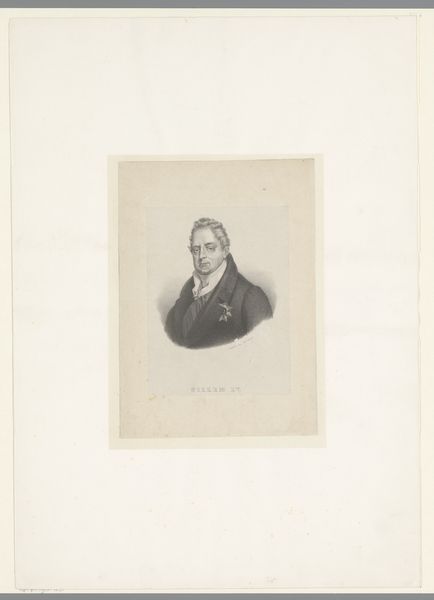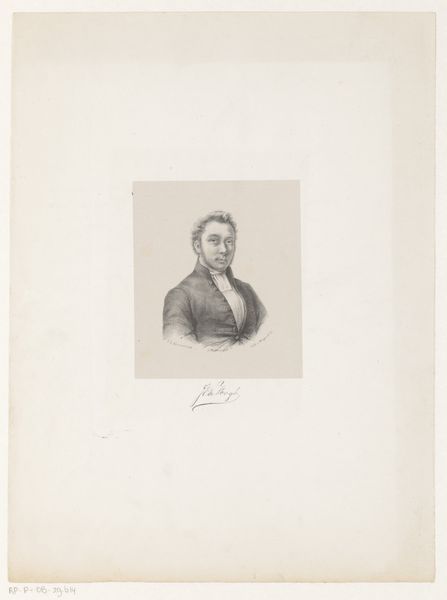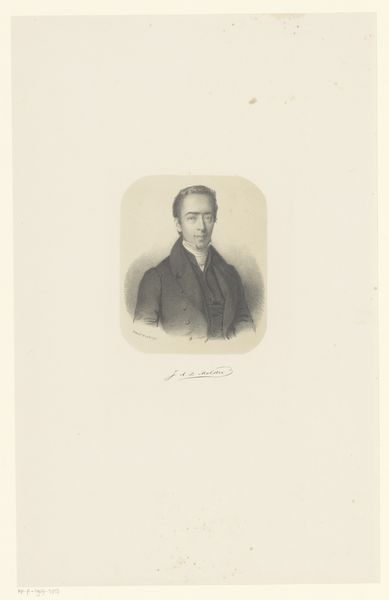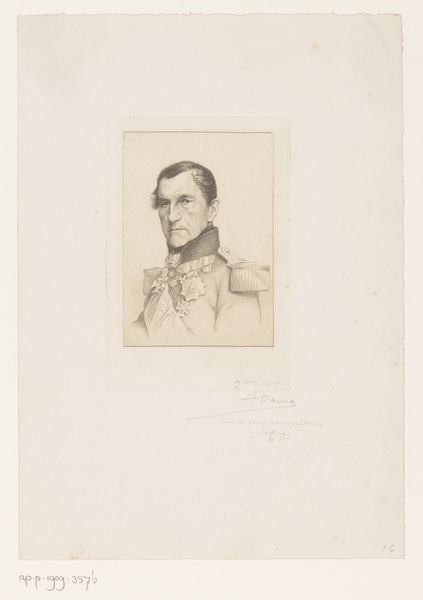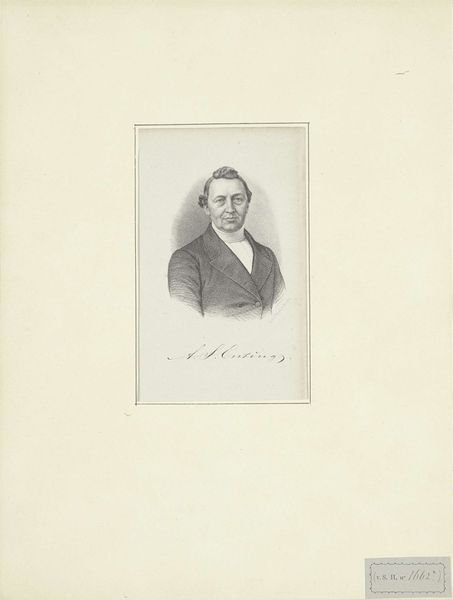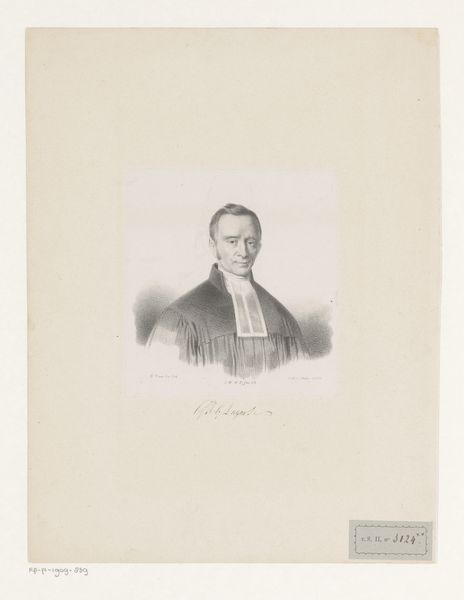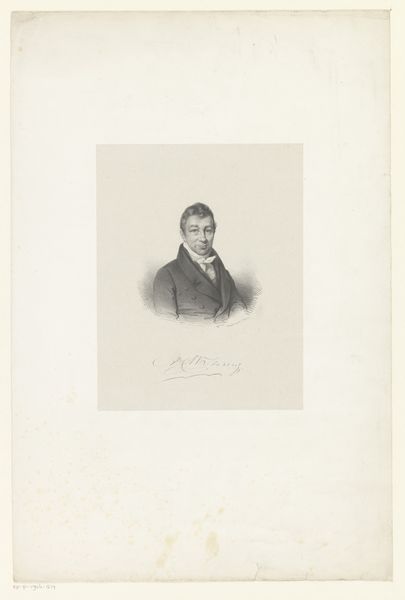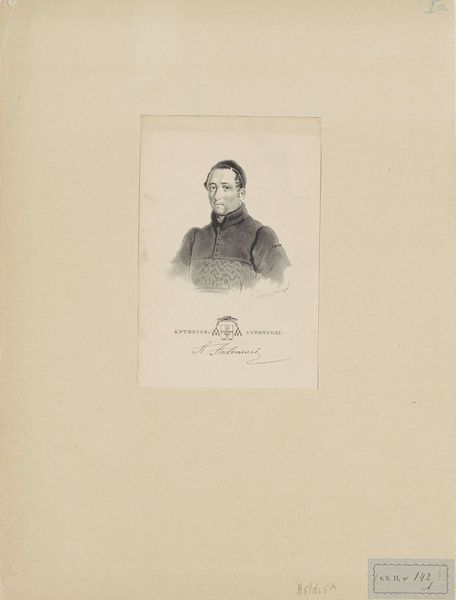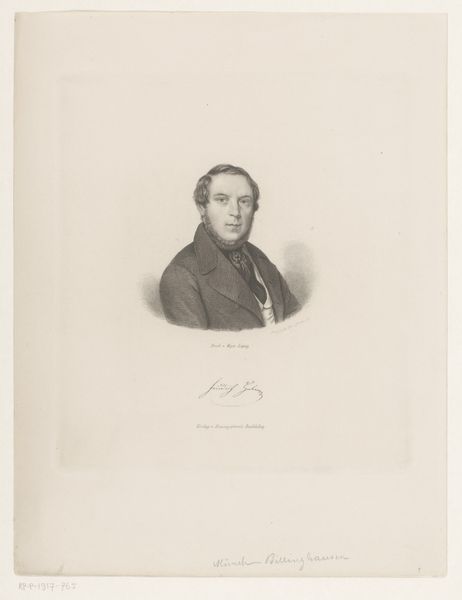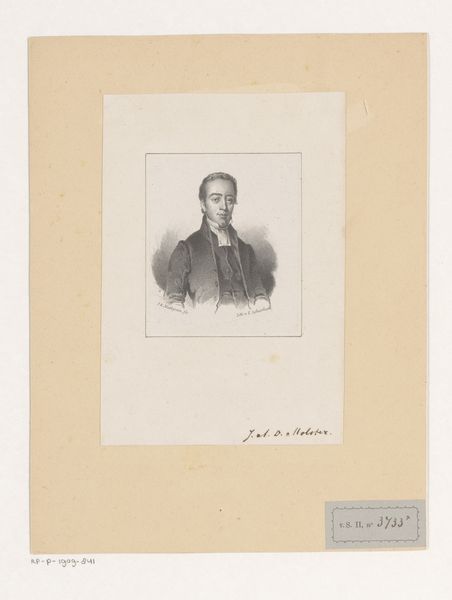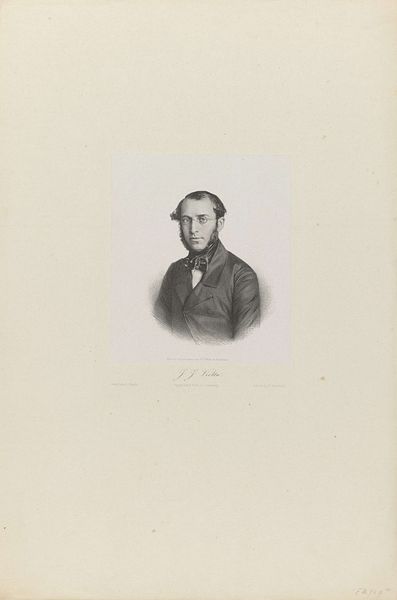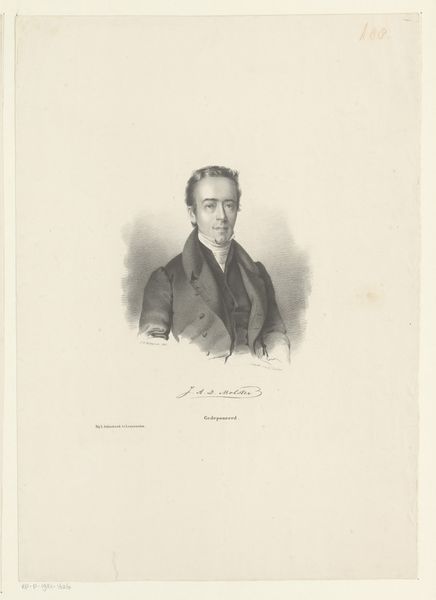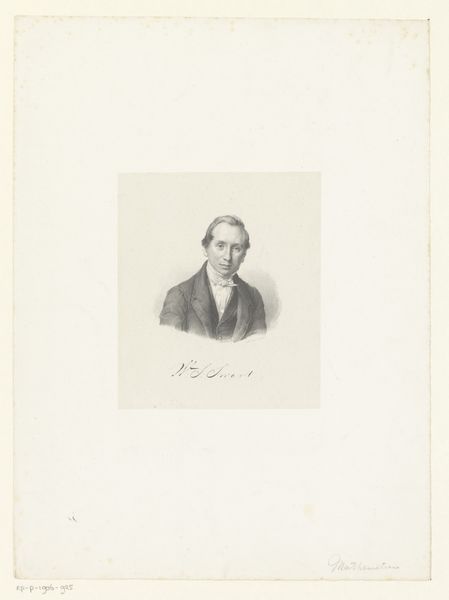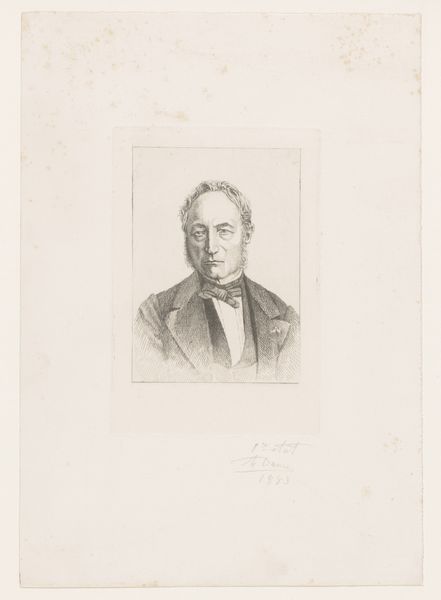
drawing, paper, ink, graphite
#
portrait
#
drawing
#
paper
#
ink
#
romanticism
#
graphite
#
realism
Dimensions: height 439 mm, width 358 mm, height 185 mm, width 143 mm
Copyright: Rijks Museum: Open Domain
Cornelis Brantsma made this portrait of Johannes Abraham Dederiks Molster, using lithography. Lithography, a printmaking technique, allows for the creation of multiple copies of an image, making art more accessible to a wider audience. The process involves drawing on a flat stone or metal plate with a greasy substance, treating it with chemicals, and then using ink to transfer the image onto paper. Brantsma's choice of lithography speaks to the growing democratization of art in the 19th century, where mechanical reproduction made images more readily available. The use of lithography allowed Brantsma to capture the likeness of Johannes Abraham Dederiks Molster efficiently, producing multiple prints for distribution. The inherent qualities of lithography, with its soft lines and subtle tonal variations, lend a sense of realism to the portrait. By considering the materials, making, and context of this artwork, we gain a deeper understanding of its social and cultural significance, challenging traditional distinctions between fine art and craft.
Comments
No comments
Be the first to comment and join the conversation on the ultimate creative platform.
